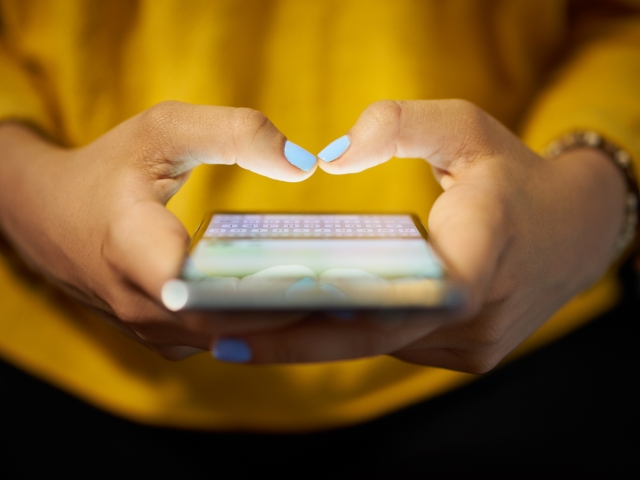Stop blaming teens’ mental health issues on “screen time”
There are several troubling signs that our environment may be taking a toll on teen’s mental health: Teen anxiety, depression, and suicide are all on the rise.
It’s not clear what’s driving these trends, but one compelling hypothesis keeps showing up. Since smartphones and digital technology are fundamentally changing the way kids interact with one another and the world, maybe they’re also leading them to greater stress and isolation.
But this is far, far from a foregone conclusion. The research literature on this question — for both kids and adults — as one researcher recently told me, “is a wreck.”
A big reason why: A lot of the research on lumps all tech into one catch-all “screen time” variable. That is, in surveys that include measures of technology use and mental health, respondents are often simply asked to remember how much time they spend on a screen each day. That’s not ideal.
“Screen time isn’t a thing; it’s 100 things,” Florence Breslin, a scientist with the Laureate Institute for Brain Research, says. “It’s social media, it’s video games. it’s research, it’s reading.” Those categories can even be refined further. Playing an online cooperative game with friends is a different experience than playing a solitary game, for example. And researcher ought to expect, or wonder, if those different applications yield different effects in the mind.
“Important nuance is missing if we just talk about digital technologies in general,” Amy Orben, a psychologist also with the Oxford Internet Institute, says. “Scrolling through skinny Instagram models will naturally have very different effects than Skyping your grandmother or chatting with your school classmates.”
The state of the research on teens and tech is a lot like nutrition research: really, really messy
You can think of the research on teens, digital technology, and mental health as being like nutrition research, another famously messy field of science.
Nutrition research often relies on reports from people asked to remember what they ate. And people are really, really bad at this — so much so that memory-based diet research may be “fundamentally and fatally flawed,” as my colleague Julia Belluz has explained.
Perhaps we should wonder if the same is true of the research on teens and tech. On these surveys, teens are simply asked to report how many hours a day they spend on computers or smartphones or tablets. And the answers are summed up in a catchall “screen time” metric. Sometimes the question is refined to “how many hours a day do you spend on social media?” Or “how many hours a day do you spend playing video games?”
These questions are hard to answer. How often are you on your smartphone just spending idle time, like waiting to check out at the grocery store, or on the toilet? As media use becomes more mindless, it may become harder to track by self-report alone.
A 2016 study that compared self-reported internet use with actual use found only about a third of people are accurate self-reporters. If anything, people tend to overreport the amount of time they spend online, the study found.
Studies need to better account for the diversity of experiences a person can have with a screen
In “nutrition, you wouldn’t talk about ‘food time,’” says Andrew Przybylski, an experimental psychologist at the Oxford Internet Institute. “You talk about calories, talk about carbohydrates, fats, and proteins’ — the idea of ‘screen time’ contains none of that richness.”
But it’s difficult because the technology is always changing. Today, teens are on TikTok(whatever the heck that is); tomorrow, they’ll be on an entirely new social media platform. At least in nutrition, a carb is always a carb. It doesn’t get updated like a smartphone app.
“You know how you hear a headline that one week wine is good for you, and the next week it isn’t,” Przybylski says. “Imagine if wine changed all the time! Imagine if there was a new kind of wine invented every 48 months.”
Screens are also creeping into more places. Heck, you can even buy a refrigerator with a screen connected to the internet. Do those count as screen time too?
If researchers want to figure out if there truly are connections between technology use and mental health, they’re going to have to collect more dense data on what teens are doing on their phones, and not just how long they spend on them.
For more on this topic — and for some ideas on how researchers can better study screen time, check out our longer explainer: Have smartphones really destroyed a generation? We don’t know.









Recent Comments